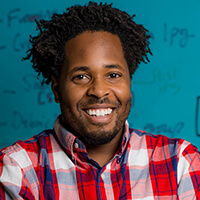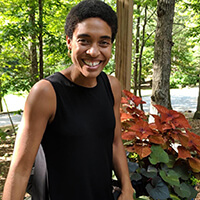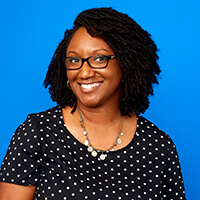


This is part 2 of a video series of conversations between Anthony Galloway Jr, Lora Smothers, and Mikala Streeter. Part 1, “Cultural Values & Self Directed Education” is here.
Mikala: But one other thing I wanted to say just about the conversation from the other day was that I think part of what can feel jarring or unwelcoming... Some people were talking about screen time, or what do I do with my kids jumping off of high places, or just like challenges, and sort of what we were talking about earlier that are just so far down Maslow’s hierarchy, that is just like–or up, I don’t know which way it goes–but that it’s like these are not the questions that I have. And I want to explore this so I know how to handle those, like those are straightforward– get down, you know?
Lora: Get down. Next.
Mikala: But at the Life School when we are talking with parents about challenges, some of the conversations more so are around how do I balance, you know, supporting them as they explore these interests? Or if my child has this learning challenge or they’re on the spectrum, how do I support them? How do I think about that as a family? Just like more complex questions. And not to judge other parents and their questions, but how do we get past... have they figured out all of these other harder things and that all that’s left is these questions, what feels like superficial questions? But maybe there’s just more depth to them that I’m missing, but I feel like when I’m talking with parents I’m struggling with the social-emotional, like deeper questions of their child’s life. Maybe this is a bit too vague.
Lora: No, I will say this, that as a parent who has now been at home with my child for like 60-some-odd days, who is not normally... I feel like our our parenting conversations have sort of sunken down to that level because we have so much time to mull over every tiny thing. Whereas before it was like, “is her spirit alive or naw?” You know? If yes, then today was a good day, she watched a lot of TV, she ate, you know? When we were both working eight hours a day we just spent less time talking about this — working away from the home — we spent less time talking about those kinds of things.
Anthony: I have two thoughts to that, Mikala, or two pieces of a response. I think there’s sort of this line like there’s the parenting part of it, right, and then there’s the schooling or how you approach education, part of it, which for a parent, that line is blurred for sure, if it’s even there. And that’s in the realm of like SDE, and unschooling, deschooling, homeschooling people. Where like the style, the way that you parent and stuff, sometimes can overlap with your philosophy and your approach to education. I’ve seen that happen where there’s like this sort of weird middle ground, and I’ve seen it be difficult to navigate that. And at the same time, as an educator and getting deeper into this and doing it for longer now, sometimes it feels very weird. I’ll say, in that... I’ll find myself feeling led or compelled to do something or wondering if I should do something that then I’m like, does this fall outside the boundary of being like this kid’s educator, mentor?
It’s like parenting at this point or like, oh, somebody wants to do something and I am like, “oh, that seems like a parenting thing, not an educator thing.” But so much now, just the way that Heartwood operates and the way our community operates, the gray area between that [parenting thing and educator thing] is getting bigger, I guess, and odder and more difficult to navigate and figure out. Like, OK, what’s a “Your parents can handle this thing” and what’s a “Oh, this is my domain.”
For the parent I think it’s just like the more you are into SDE, just like the difference between those two sectors completely is going away anyways. That’s why I think the conversation of being concerned about a kid jumping from a high place or whatever, I can see that that seems like a distant sort of thing, like not a priority– Oh, that’s in a parenting category, and this is how I parent, so be it. As far as education that’s where we can talk and we can wonder. But I think for some SDE-ish parents the boundaries between those two things is very leaky.
Mikala: Ok, so that’s not what I was saying at all.
Anthony: Oh.
Mikala: Yeah. So for me working with the students, I’m perfectly comfortable, like, when you’re here at school, I am your de facto parent-esque person, right? So if you’re sad, we’re going to sit down, we’re going to talk about it. If you smell, we’re going to talk about that and we’re going to go to the bathroom and sort this out. Right? And then when your actual parent comes to pick you up, we’re just going to talk about all the things that happened today that they can, now I can pass on to them and they can go ahead and address. Right? And every relationship with every parent I feel like is different. Some people are more receptive to like, “hey, let me point you to a hair salon”... and some people aren’t as receptive to that. But I think, and this may go into the the difference between each of our flavors of nontraditional schooling. Our school I would say is a bit farther to the left or right, I don’t know, on the spectrum of like more towards Montessori than Sudbury.
Lora: You’re to the right. The right of the left.
Mikala: I would think it’s probably the right... like, political left and right. More to the center or something. Yeah, so that there is more like here is a class, here are these graduation requirements, like there are some more specifics and formal structure around how learning happens, but also this space and flexibility throughout the day for you to have a lot of choice in that. And so for a lot of our families, a decision to say if you’re on a high place, you need to get down, feel just very much in line with that versus like... let’s see how it goes.
Lora: I feel like you should point out what your demographic is mainly. Do people know that who will watch this? I don’t know.
Mikala: The Life School is a nontraditional, project-based high school in downtown Atlanta. We are transforming the high school experience. So we primarily serve low to middle income families of color, while we serve other students as well, that’s our primary target area. So there is, I think you guys can speak to how much overlap there is or is in the communities that have been a part of. But I think for a lot of our families, unless we’re outside playing and climbing trees together, there’s no scenario where a child is on a roof, or on another high place, and the immediate response is “get down immediately.” There’s just no scenario where that’s like, “let me think about how I would respond to that?”
Lora: And so I’m thinking just like the percentage of Black parents in the world who would disagree with you would be very small.
Mikala: Yeah.
Lora: You know what I’m saying? So that matters in this world that we inhabit, this SDE world. Especially if the lines are that blurry, which they inevitably are, because when you’re a small school it is like what you’re describing. It’s like I parent a little, you parent a little, can you coach me on this, I’ll coach you on this? It’s exactly like that. And so then enter Black parenting style into this space, either through the educator or through the parent who can be part of the school. And so now there’s going to be some inevitable clash in that moment when a kid wants to climb across whatever it is. Unless, you know, it’s the small percentage that is being represented, which it often is actually. You know what I’m saying? That’s where I think it can be... There’s just another layer of discomfort that’s created that can be created... I’m going to be honest with you guys. So I became a parent in the middle of Freedom to Grow, and I had a daughter for the last two years that I was doing it. And there were some things about my own parenting style that I was super hiding from the community because I didn’t want to get charged. I didn’t want people to be like, “oh, you’re not a... Whatever.”
Anthony: That’s a frequent thing. A lot of parents do that.
Lora: Really?
Anthony: Yeah, I pick up on it. Now after a few years, like a lot of parents, I can tell they think that they have to be or parent a certain way because they’re in this SDE space or community, and so they really bite their tongue or sort of try to turn themselves down or whatever in certain situations. And they’re not sure if it’s OK to say or approach certain things a certain way, and it’s interesting.
Lora: And I think that was the appropriate decision on my part as the person in leadership with power wanting to create a welcoming space. There’s some amount of...I don’t know how to say it. It’s like you want to bring your full self into space, but you want to have everybody be able to feel welcome. So. That’s what I was attempting to do, I think.
Anthony: How do you all feel? It feels like we’re on the cusp of the subject I discovered, like we’re unschool-y people, and then I found out there’s the boundary between that and parenting, like there’s unparenting as well, right? Which I think those two things sometimes overlap, or maybe a lot of times they don’t. But they’re like distinct sort of things that exist. And I had a light brush with the online Facebook community for a little while, and I was just like, oh, this is, this is definitely not a cultural fit for me whatsoever. But I just wonder, do you all think that what we’re talking about now is more of the difference between unschooling and unparenting, the difference between how I choose to parent and how I choose to school my young person?
Mikala: Well, I mean, I think Akilah [Richards] puts a good frame on it to say that it’s all about raising free people. And what does that look like in your family? And that is different from family to family, the questions. And a lot of it will reflect on the things that you may have thought, as you reflect on your own child, were inhibiting. And how do I keep my child from those things or try to not reinforce the things that, in reflection, my parents did that didn’t feel good or ended up causing X, Y, Z kind of results. But sometimes I just think that some people have solved all the things and answered all the questions, and what’s left is, I don’t know... that’s how it comes off sometimes. Like if these are the questions that are left, then let’s just be happy, let’s not feel like we have more to reflect on. This is where we are.
Anthony: So your hierarchy of needs reference... I had this idea in college, we were talking about this and how a person might be at a certain level if another level’s not met, and I don’t think they’re necessarily in sequence. Like, you have to have met these other things in order for you to address the sort of higher needs, if you will. I think they can, and do, simultaneously shift and change as your priority for them being met. I don’t believe that you have to be in a situation of, you know, having your food security and your housing security, and all those things being met and consistent, in order for you to be able to also question, “do I want to make my child go to bed at a certain time or do I want to see if they can decide? Let’s talk about this, honey, later today, and figure this out.” I think all those things can happen whenever they happen. I don’t think you have to be of a certain class in order to be able to discuss that. I think maybe there are some correlations there, but I don’t know that...
Lora: I don’t want to sound like we’re bashing that or minimizing. At least I don’t want to minimize those kinds of questions.
Anthony: I don’t want to minimize it either, Lora.
Lora: I just wanted to point out that if you gathered 10 Black parents the conversation would have been different. And I don’t even know exactly how, you know.
Anthony: What’s funny is that the sort of “jumping from high place” conversation that we’re referencing, that was a Black mom.
Lora: It was. Oh, I love her, too.
Lora: Yeah, because even what’s coming to mind is the spanking conversation, which, you know, in this world we’re so past that, but in our world we’re really not. And for someone to categorically say all of that is bad parenting, well, then you just have thrown a whole culture under the bus, and I think that’s worth considering. I think that’s worth saying, how can all of that whole thing that just happens to be, you know, not white all be bad?
Anthony: I think it’s worth also pushing to say, like, why? Why is that? Like, why is that a Black thing, a parenting thing? Where does that come from? Why is that there?
Lora: Yes.
Anthony: I would hate to pathologize a whole sort of culture’s way of parenting and consider it toxic and not acknowledge where that style of parenting came from and why it was the sort of route or way in which they chose. It would be horribly irresponsible to judge that and not acknowledge that there are some things that happened, traumatic cultural, on a cultural level, things that happened that caused it to be the way that these people operate.
Lora: Yeah, and I’m not advocating for that. But yeah, I really like how you just said that.
If you enjoyed this article and feel called to give back to ASDE, here are ways you can support our work:
- Donate money
- Share our content with others! Click one of the buttons above to easily share on Twitter, Facebook, or email.
- Consider becoming a Contributor for Tipping Points
Tipping Points Magazine amplifies the diverse voices within the Self-Directed Education movement. The views expressed in our content belong solely to the author(s). The Alliance for Self-Directed Education disclaims responsibility for any interpretation or application of the information provided. Engage in dialogue by reaching out to the author(s) directly.





